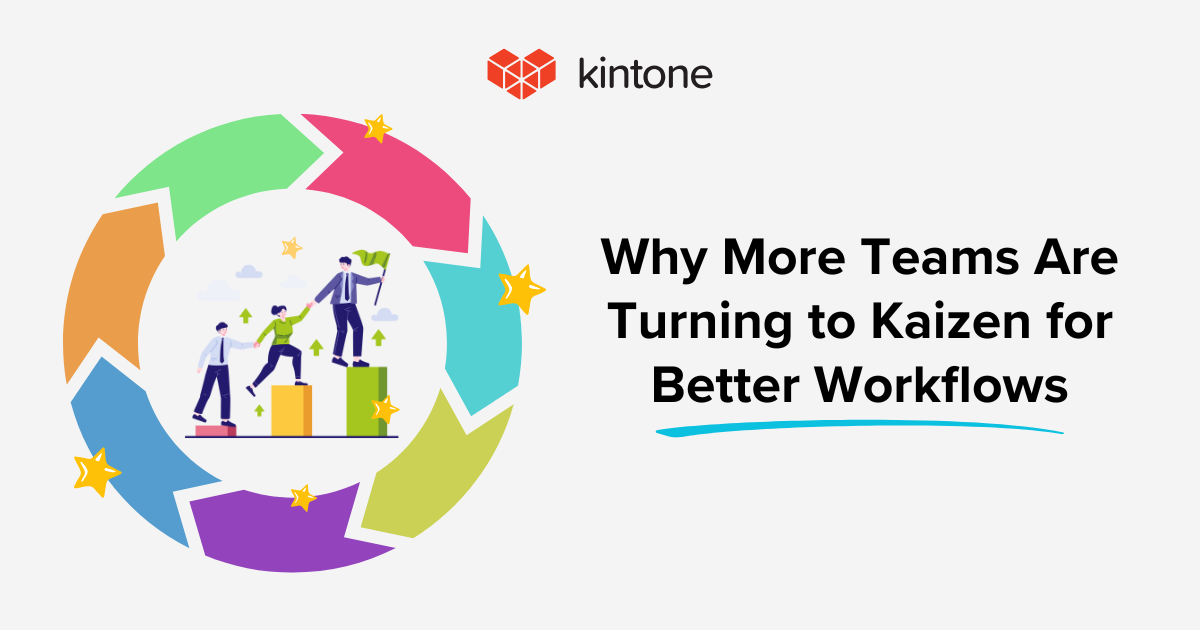Maybe you have friends who work in administration or operations management. And in between drinks and starters they tell you a couple of stories about their work. Some of those stories are funny, some are infuriating. But a lot of times, they don’t always tell the full picture of what it takes to be in administration.
Here are four things administrators want you to know about their work:
Reading people isn’t just for psychics
Everyone has quirks, and your boss is no exception. Working in administration with company leaders, it’s your job to not only learn your boss’ habits but also anticipate them.
“I regularly work with Dave and Osamu, CEO and CGO of Kintone respectively, as part of my work,” says Megumi Weider, HR Assistant and Business Operations at Kintone. “Neither of them micromanages, so there’s a lot of leeway when it comes to handling projects. But sometimes even after you’ve been given a project you find one of them has a vision for it. They’ve given you freedom, but they have an idea of what they want to see. You have to expect that and work with it.”
Eva, a Second Assistant and administrative catch-all for a movie production company, felt similar: “My boss has a lot going on and there’s a lot of different directions you’ll go. She changes her mind a lot…you have to learn to not jump the gun every time a new direction is suggested. You need to wait a beat and anticipate things may change again. It’s really important to observe your boss and figure out what they do…that way you don’t take on a lot of work that may not matter a day or two later.”
Adapt or die trying is the motto of every day
A lot of work can be predictable. Answering calls, organizing emails, keeping track of vendors for a project. But there are always projects you can’t see coming— and they’re often about things you’ve never done before.
Eva recounted her first day on the job: “I walked in and my boss told me I needed to buy top-of-the-line Champagne and caviar for three clients in Sweden. Well, I called over and it was late at night, so of course they couldn’t do anything. So I had to wait until it was working hours in Sweden to call back. While talking to the front desk at the hotel the clients were staying at, I realized that they don’t carry the same kinds of Champagne and caviar we have here in America. I had to find Swedish equivalents while working through a language barrier.”
Megumi had her own challenges when tasked with setting up Kintone’s San Francisco headquarters at the WeWork location on 44 Montgomery. “When you establish an office location for a company, you have to create a concept of what the office is,” she said. The concept helps determine the entire atmosphere and mood of the office; it tells team members what to expect for themselves and from others while working together. Megumi set out to create an office that met the needs of the Kintone team while keeping in line with Kintone’s work culture vision—something she had never done before.
“There’s a lot of vendors you have to talk to. Facility staff, furniture places…it was all completely new, but it had to be done. [At the end of the day,] we wanted to create a comfortable space…we wanted [Kintone] members to feel comfortable enough to bring friends, partners, and family into the office. That’s the reason why we have a kotatsu in one of our office rooms,” she added. A kotatsu is a low table covered in a heavy blanket, usually with a heater underneath. Kotatsus are popular in Japan and especially popular with the Kintone team.
ALSO READ: A Company of Owners: 5 Ways to Promote Intrapreneurship in Every Employee
Just because it’s not in the spotlight doesn’t mean it’s not important
Administration: the word doesn’t exactly get hearts racing. But it’s what keeps a company’s pulse beating through every triumph and failure.
“Administration isn’t always a front facing role. It’s not making sales or putting attractive pictures on subway walls. It can get overlooked or sometimes seen as not as important by people who just don’t know,” said Megumi. “There are times where it can be easy to think ‘I’m just doing things everyone can do.’ But it’s not true; administration demands a certain level of skill and ability, and if you don’t have it or aren’t willing to learn it, you won’t be happy in your work.”
“Without us, everything falls apart,” said Eva. “Movies don’t get made, meetings get missed. We are what keep things running.”
Administrators define what it means to be a self-starter
There are things businesses need, and a lot of those are predictable. Supplies, furniture, business processes. But there’s not always someone leading the way when it comes to learning things.
“I had maybe a day of training before I was in the middle of things,” said Eva. “It was a really short onboarding process. Here’s what you do, now do it. You have to take that and run with it and then make it into something more. Being a really good assistant or being a really competent assistant is great, but the thing that will really put you ahead or push you over the edge [are] the little contributions in meetings or going the extra mile and doing things even if nobody asks you to do it.”
“You have to be self-learner,” said Megumi. “[There are times where] your team doesn’t have the answers and you must be open to doing research on your own.”
To all the administrators who keep things moving, thank you for your work. We could not do it without you.
Happy Administrative Professional Day!
About the Author
Michelle is the Content Marketing Specialist at Kintone. She is a content marketing expert with several years in content marketing. She moved to San Francisco in 2015 and has experience working in small businesses, non-profits, and video production firms. She graduated in 2012 with a dual degree in Film and English.











